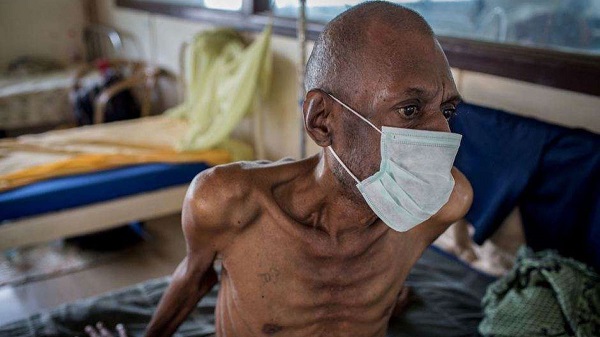
The Federal Government of Nigeria has reaffirmed its commitment to making tuberculosis (TB) a national priority, emphasising the need for coordinated efforts across multiple sectors to effectively combat the epidemic.
Minister of Health and Social Welfare, Prof. Ali Pate expressed this during the UN Alliance of Countries on the Fight Against Tuberculosis. He highlighted the critical impact of climate change on global TB efforts at a UN General Assembly side event on Tuesday.
According to Science Nigeria, the event—co-hosted by the UN Alliance, the Government of Brazil and the World Health Organisation (WHO)—focused on addressing the intersection of climate change and TB, in line with commitments made by world leaders at the 2023 UN High-Level Meeting on TB.
“Climate change poses a significant threat to the progress countries are making toward accelerating the TB response,” said the UN representative. The TB epidemic is closely linked to inequities such as poverty and malnutrition, which are worsened by climate crises, armed conflict and pandemics.
Pate, represented by the director of public health of the Federal Ministry of Health and Social Welfare, Dr. Chukwuma Anyaike emphasised that, as the world faces these challenges, it must rethink its strategies and embrace innovative solutions to address the underlying drivers of TB, including the impacts of climate change.
The minister stressed the importance of multi-sectoral collaboration, involving not only the health sector but also agriculture, social development, education, labour and finance, to develop a comprehensive response to TB. He urged countries to enhance their TB strategies to be more resilient to climate change and reduce the environmental impact of TB tools and services.
Furthermore, Pate called for increased research and funding to better understand the link between climate change and health dynamics. He also stressed the need for greater engagement of civil society and TB-affected communities in shaping solutions.
“Our goal is to build a climate-resilient TB response that upholds human rights, combats stigma, promotes gender equality and protects vulnerable populations from financial hardship,” he said.
Pate’s call comes amid growing global concerns about the impact of climate change on public health, particularly on diseases like TB, which disproportionately affect marginalised communities.
“We reaffirmed our commitment to the political declaration of the 2023 UN High-Level Meeting on TB and pledged to continue working with international partners, including WHO, to address the challenges posed by both TB and climate change,” he added.
The 2023 UN High-Level Meeting on Tuberculosis Political Declaration includes several key commitments:
– Renewed global dedication to achieving the Sustainable Development Goal (SDG) target of ending TB by 2030, focusing on reducing incidence and mortality.
– Ensuring equitable, comprehensive TB care, with a focus on vulnerable populations and reducing financial hardship.
– Strengthening coordination across sectors like health, education and social protection to address TB’s root causes, such as poverty and malnutrition.
– Increasing funding for research on new TB diagnostics, vaccines and treatments, particularly for drug-resistant TB.
– Developing strategies to address the impact of climate change on TB transmission and healthcare systems.

